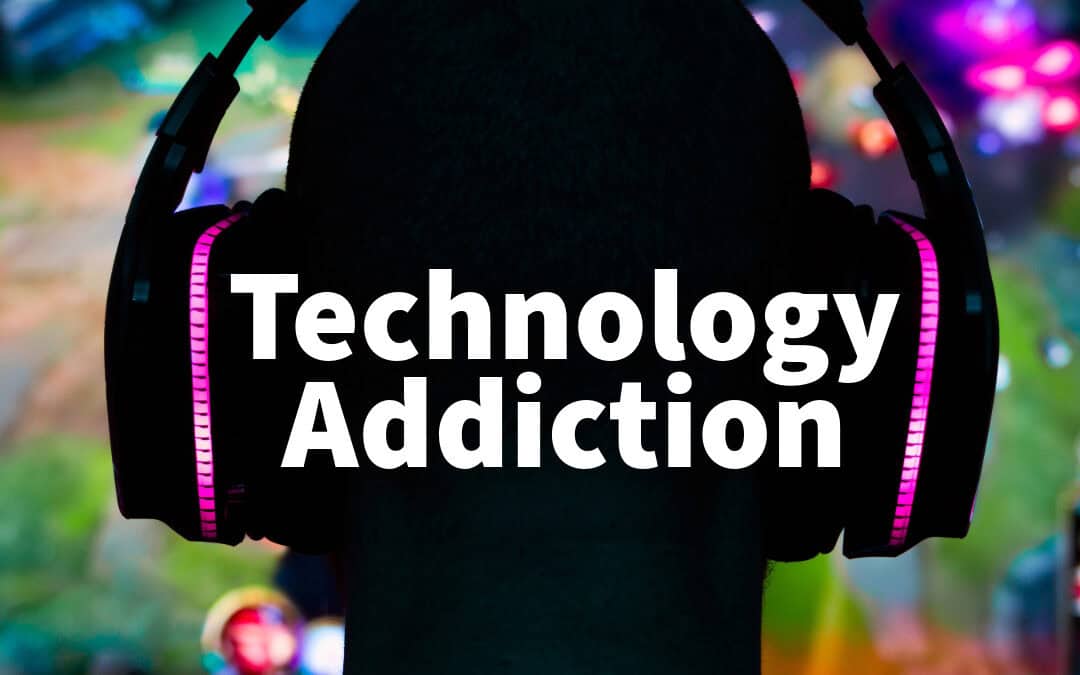In today’s digital age, technology is intertwined with our daily lives. From smartphones and social media to online gaming and streaming services, technology offers endless distractions. For many young adults, this constant connectivity can lead to technology addiction, a condition that significantly impacts their ability to transition into adulthood. This phenomenon, known as “Failure to Launch,” is becoming increasingly common. Technology addiction holds young adults back, hindering their academic, social, and career development.
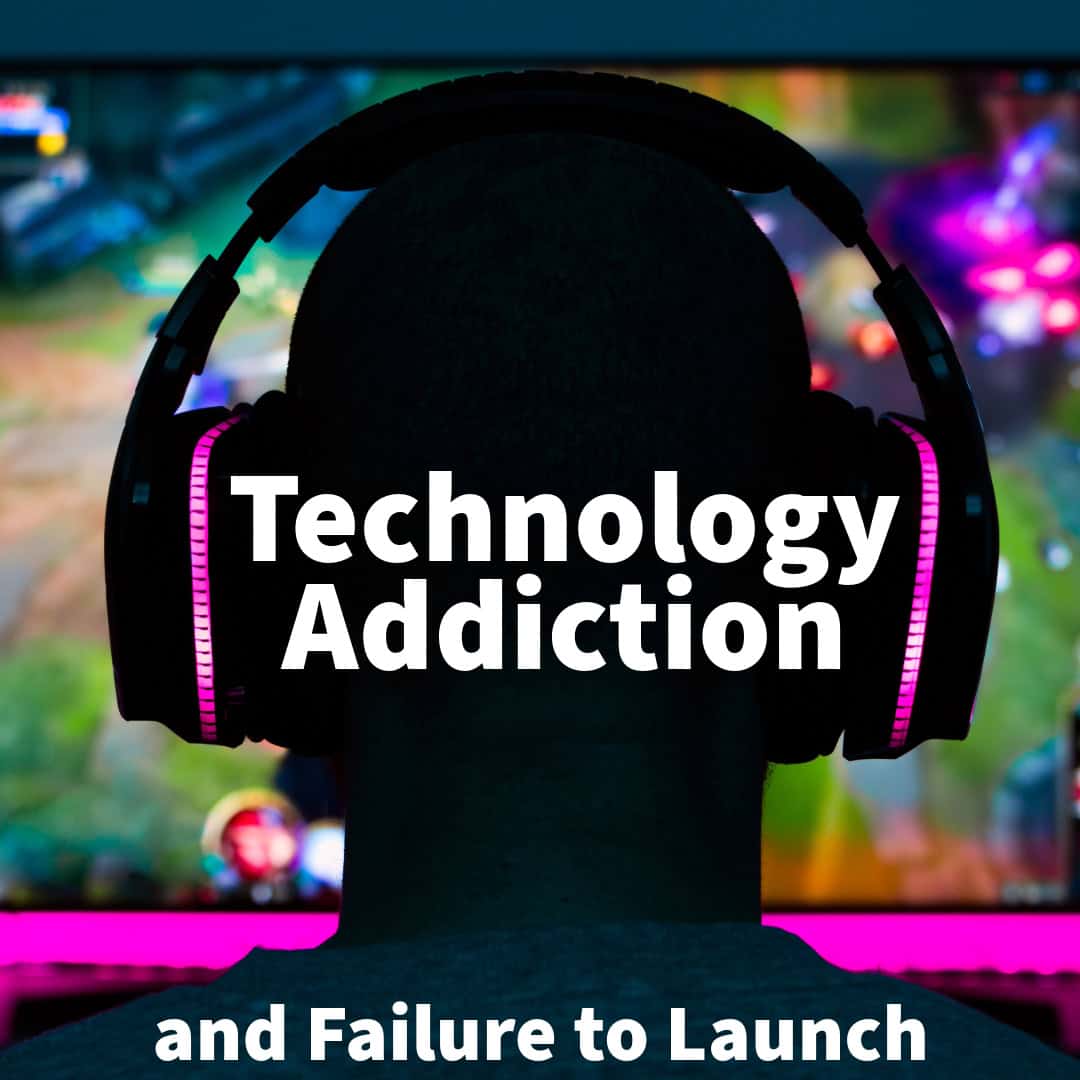
Understanding Technology Addiction
Definition
Technology addiction is the compulsive use of digital devices such as smartphones, computers, and gaming consoles. This addiction can manifest through excessive gaming, social media usage, or endless hours spent browsing the internet, often at the expense of more important tasks and relationships.
Statistics
Recent studies show that nearly 50% of young adults report feeling addicted to their smartphones. A recent study of undergraduates found that having a smartphone in their pocket or bag can negatively impact students’ cognitive function on tests. These alarming statistics reflect the growing prevalence of technology addiction among young adults.
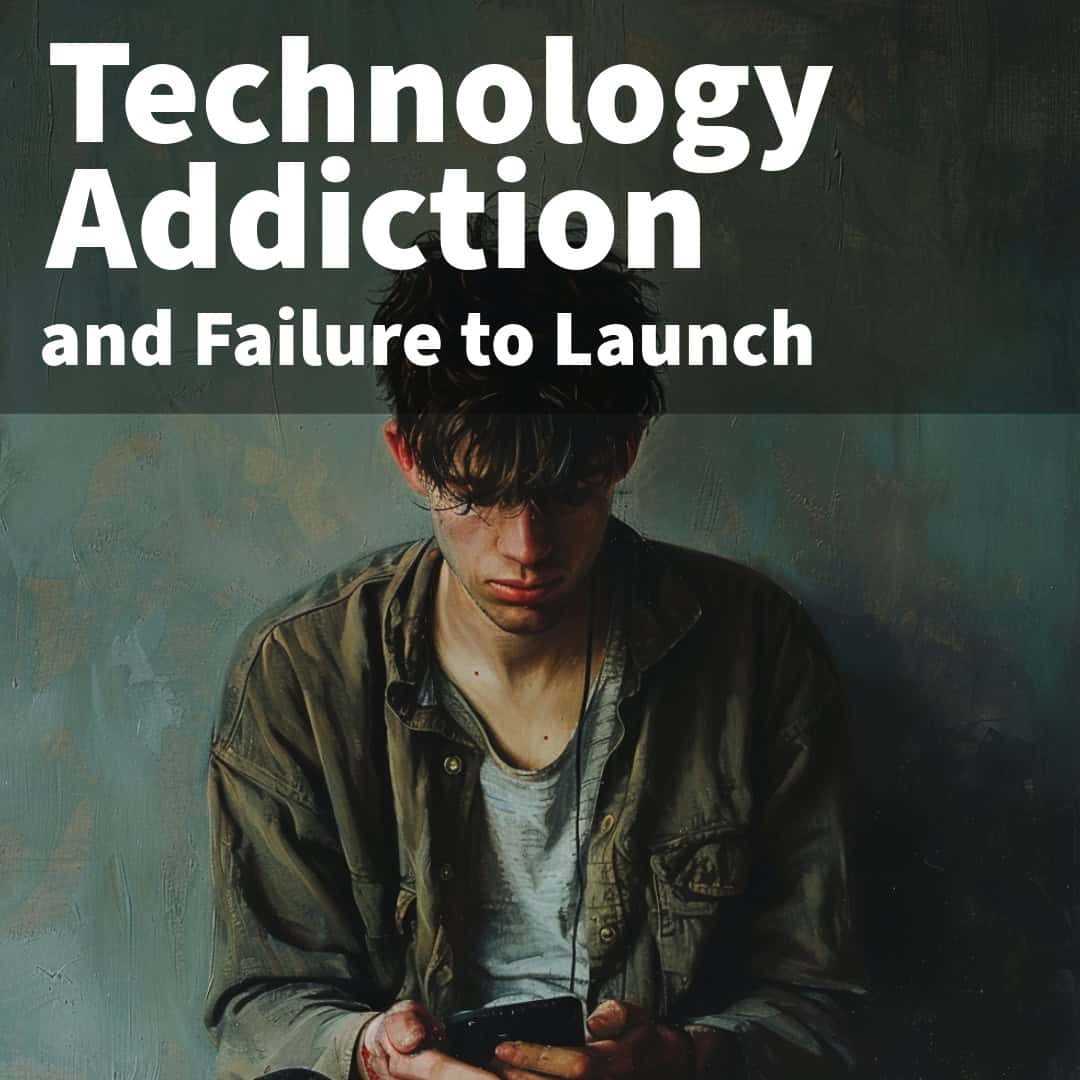
Symptoms and Signs
Identifying technology addiction can be challenging but paying attention to certain behaviors can help. Common signs include:
- Neglecting Responsibilities: Ignoring academic, work, or household duties.
- Social Withdrawal: Preferring online interactions over face-to-face communication.
- Mood Changes: Experiencing anxiety or irritability when unable to access technology.
- Loss of Interest: Losing interest in activities once enjoyed.
- Sleep Disturbances: Staying up late browsing or gaming, leads to poor sleep patterns.
The Connection Between Technology Addiction and Failure to Launch
Behavioral Impact
Addiction to Technology profoundly impacts daily behaviors and responsibilities. Young adults entangled in tech addiction often struggle to manage their time effectively. Hours meant for studying, attending classes, or job hunting are instead spent online. This mismanagement of time results in missed deadlines, poor academic performance, and a lack of progression in their careers.
Mental Health Correlation
There’s a significant correlation between technology addiction and mental health issues like anxiety and depression. For many, online platforms provide a temporary escape from real-life challenges. However, this reliance on technology can deepen feelings of isolation and inadequacy, compounding failure to launch. Anxiety over unplugging and depression from excessive screen time creates a vicious cycle that hinders young adults from moving forward in life.
Real-Life Consequences
Real-life stories bring this issue into sharp focus. Take, for example, the case of a college student who spent countless hours gaming, eventually dropping out due to failing grades. Despite the potential for a bright future, the lure of virtual worlds became too strong. This student’s story isn’t unique; many young adults find their academic and career aspirations sidelined due to tech addiction.
Factors Contributing to Technology Addiction
Accessibility
The ubiquitous nature of technology makes addiction almost unavoidable. Smartphones, tablets, and computers are always within reach, making it easy to fall into habits of excessive use. This constant accessibility is a significant driver of tech addiction.
Social Media and Gaming
Social media platforms and online gaming are particularly potent forms of addiction to technology. The instant gratification and constant feedback loops inherent in these services make them highly addictive. Notifications, likes, and achievements create a cycle of dopamine releases, making it hard to unplug.
Escapism
For many young adults, technology serves as a refuge from real-life stressors. Whether it’s academic pressure, social anxiety, or family issues, technology offers a convenient escape. While this might provide short-term relief, it exacerbates long-term problems by avoiding rather than addressing underlying issues.
Addressing Technology Addiction in Young Adults
Therapeutic Interventions
Therapeutic interventions are essential for tackling technology addiction. Cognitive Behavioral Therapy (CBT) helps individuals recognize and alter problematic thought patterns and behaviors. This method is effective in reducing dependency on technology by promoting healthier habits. Group therapy offers a supportive environment where young adults can share their experiences and learn from others facing similar challenges. Additionally, digital detox programs that encourage periods of complete disconnection from technology can help reset behavior patterns positively.
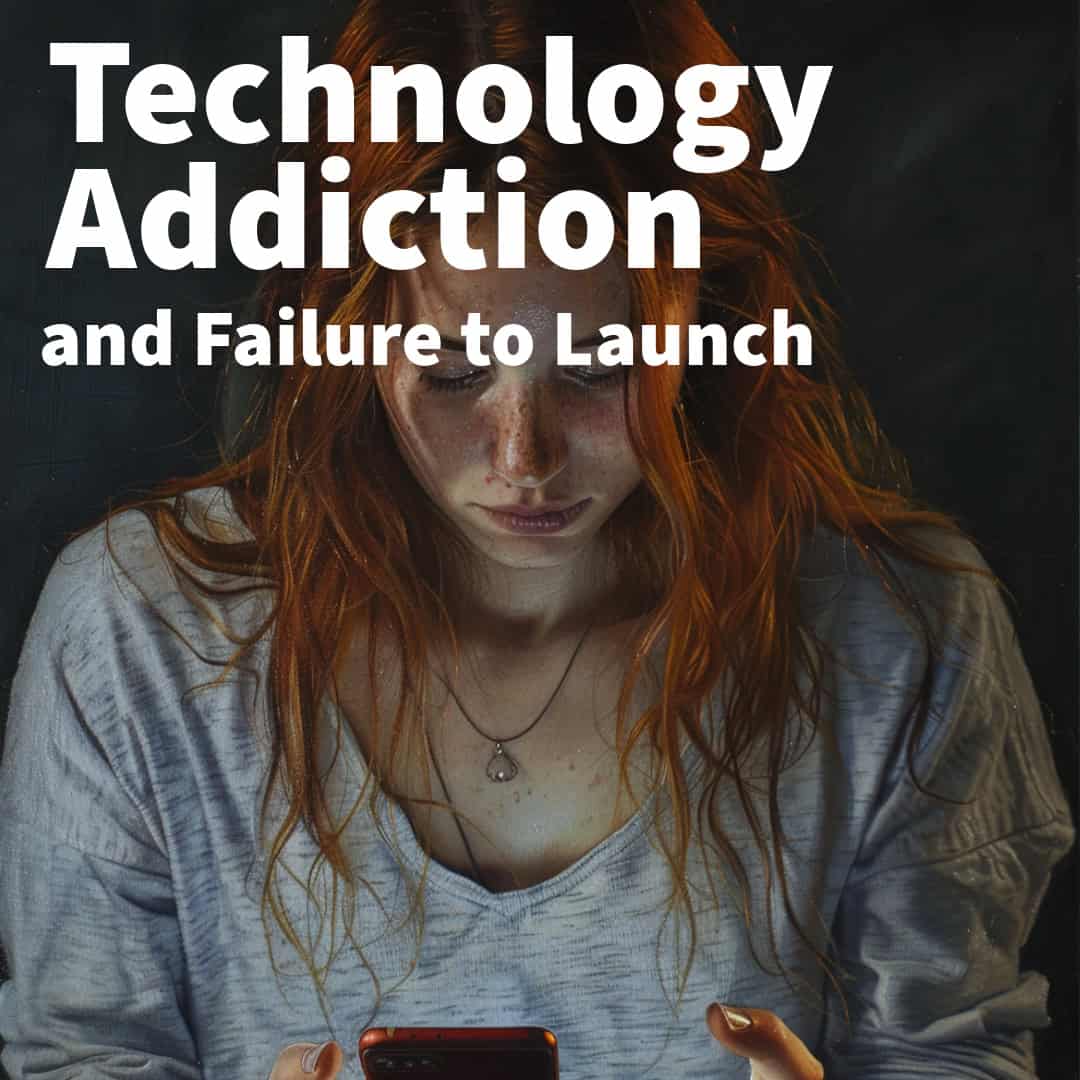
Parental and Community Support
Parents and the community have pivotal roles in managing tech addiction. Parents can establish boundaries, set screen time limits, and promote tech-free activities to foster healthier habits. Open conversations about the risks associated with excessive technology use can also be beneficial. Communities can contribute by organizing workshops and support groups, providing essential resources, and collective encouragement. These initiatives create a network of support, reinforcing positive behavior changes.
Self-Help Strategies
Young adults can employ several self-help strategies to overcome technology addiction. Setting specific and realistic time limits for technology use can create a balanced tech routine. Apps that monitor and restrict screen time are useful tools. Creating tech-free zones and scheduling regular breaks from technology encourage more engaging, offline activities. Pursuing hobbies and physical activities promotes a well-rounded lifestyle, reducing reliance on digital devices.
The Role of Transition Programs
Introduction to Transition Programs
Transition programs, like The Arise Society, offer a comprehensive solution to tech addiction and failure to launch. These programs provide structured environments where young adults can develop essential life skills and receive targeted support. By focusing on real-world applications, transition programs help students bridge the gap between dependence and independence.
The Arise Society’s Approach
At The Arise Society, we adopt a unique relationship-based immersive program. We integrate academic, therapeutic, and social support to address the specific challenges of tech addiction and failure to launch. Personalized care plans cater to each student’s unique needs, guiding them toward independence and resilience. By focusing on individual strengths and fostering meaningful relationships, we help our students cultivate the skills necessary for a successful transition into adulthood.
Conclusion
Addiction to technology is a significant barrier for young adults aiming to achieve independence. Its effects on behavior, mental health, and daily responsibilities are profound. However, through targeted therapeutic interventions, strong parental and community support, and structured transition programs like The Arise Society, there is hope. By addressing tech addiction and fostering essential life skills, we can empower young adults to reclaim their potential and confidently step into their futures.
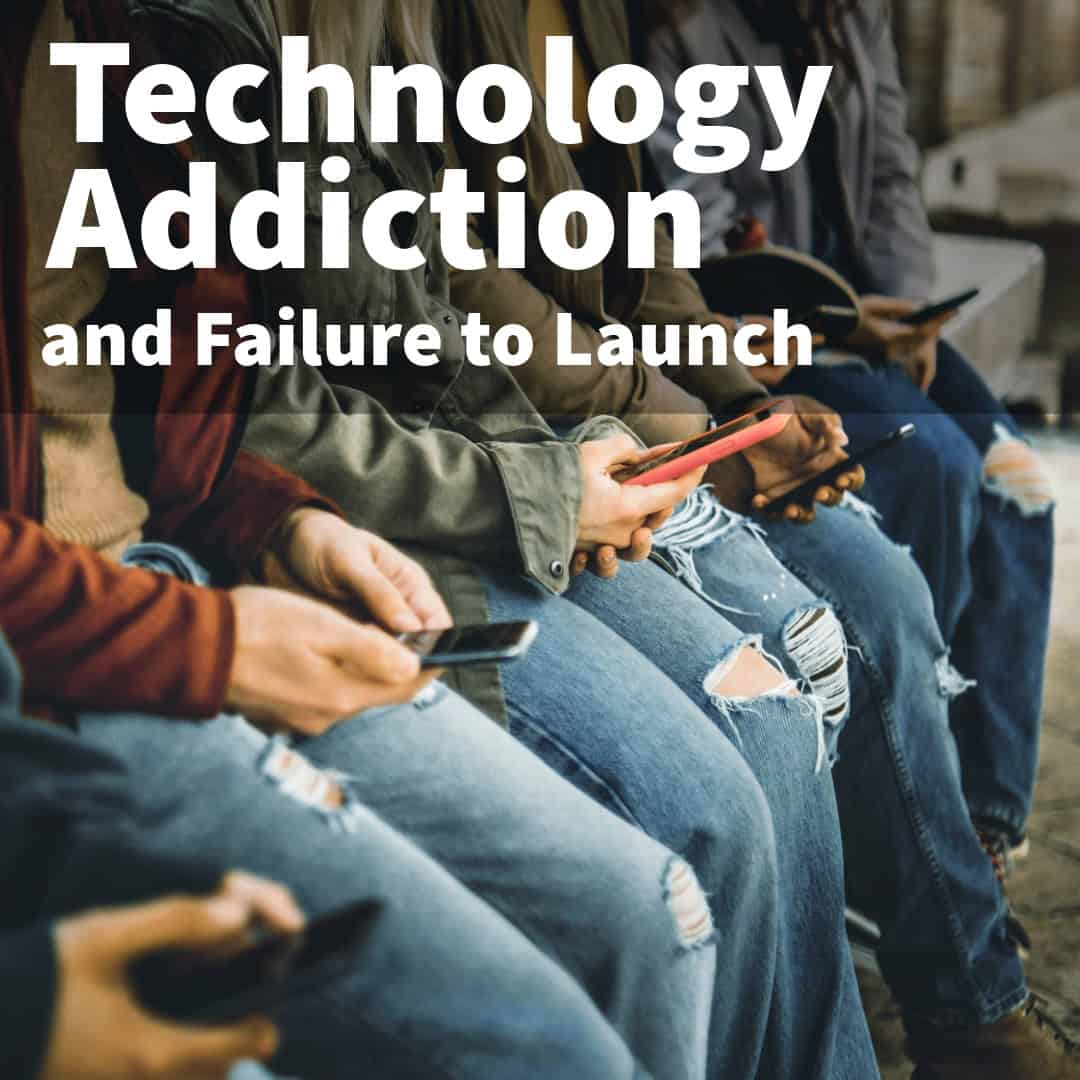
We Are Here to Help
To parents and young adults facing tech addiction or “Failure to Launch” syndrome, we’re here to help. The Arise Society offers more than treatment—we provide a transformative experience to unlock potential and achieve independence. Contact us today! We’re here for you.
FAQs –
Q1: What is technology addiction?
- Technology addiction is the compulsive use of digital devices such as smartphones, computers, and gaming consoles. It can manifest through excessive gaming, social media usage, or prolonged internet browsing, often disrupting daily responsibilities and relationships.
Q2: How does technology addiction contribute to failure to launch?
- Technology addiction impacts young adults by interfering with time management, academic performance, and career progression. It often leads to neglect of responsibilities, and social withdrawal, and exacerbates mental health issues like anxiety and depression, making it challenging for young adults to transition into independent adulthood.
Q3: What are some signs of technology addiction?
- Common signs include neglecting responsibilities, preferring online interactions over face-to-face communication, experiencing mood changes like anxiety when away from technology, losing interest in previously enjoyed activities, and suffering from disturbed sleep patterns due to excessive screen time.
Q4: What strategies can help young adults overcome technology addiction?
- Effective strategies include setting specific time limits for technology use, using apps that track and limit screen time, creating tech-free zones and times, engaging in offline hobbies, and participating in physical activities. Therapeutic interventions like Cognitive Behavioral Therapy (CBT) and support from family and community are also beneficial.
Q5: How do transition programs like The Arise Society help with technology addiction and failure to launch?
- Transition programs offer structured environments that provide academic, therapeutic, and social support tailored to individual needs. Programs like The Arise Society use a relationship-based approach to help young adults develop essential life skills, foster meaningful relationships, and guide them toward independence and resilience, addressing both technology addiction and the failure to launch.
References:
Ward, A. F., Duke, K., Gneezy, A., & Bos, M. W. (2017). Brain drain: The mere presence of one’s own smartphone reduces available cognitive capacity. Journal of the Association for Consumer Research, 2(2), 140–154. https://doi.org/10.1086/691462

